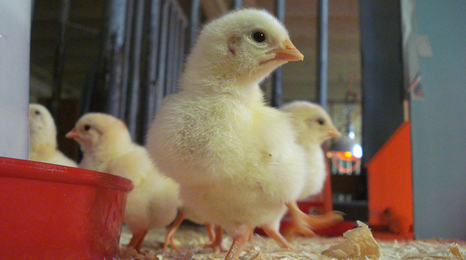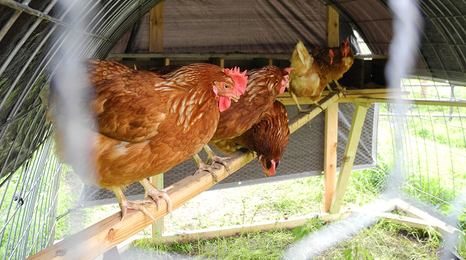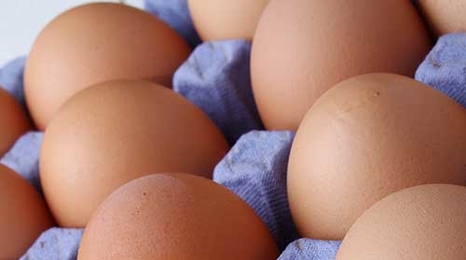Mayo Clinic Health System Event Center
Small-scale poultry
Standards for organic livestock and poultry — The United States Department of Agriculture published new organic livestock and poultry production standards. The goal of clearer standards is to increase consistency in animal welfare practices.
Keeping birds healthy
Urban and backyard flocks owners can reduce the spread of diseases like avian influenza, salmonella or e. coli by implementing a simple biosecurity plan.
Biosecurity for your pigeon loft
- Biosecurity in your loft helps prevent disease in your loft.
- Isolate your flock from other birds. Always quarantine new or returning birds for 14 days.
Diseases of small poultry flocks
- Causes, symptoms, prevention and treatment of diseases and parasites in small flocks.
- If you suspect disease in your flock, consult with a veterinarian.
Birds can die for many reasons, so some death loss is to be expected. However, if frequency or numbers are increasing, then you may want to have the birds tested at the Veterinary Diagnostic Laboratory to discover the source of the problem.
Avian influenza basics
Avian influenza is harmful to poultry flocks especially if it’s highly pathogenic. Always report any signs of disease to your state agency or veterinarian. Preventing disease is the best way to keep your flock healthy.
- Basics for organic and pastured poultry flocks
- Basics for urban and backyard flocks
- Basics for pigeon lofts
- Pigeons and influenza viruses
Highly pathogenic avian influenza
Introduction to MN Board of Animal Health (9:33)
Commercial and noncommercial poultry (3:06)
What is highly pathogenic influenza (HPAI)? (13:03)
Signs of HPAI (6:18)
Responding to HPAI (8:48)
Why it is important to test for HPAI (2:40)
Small flock biosecurity: protecting your birds from avian influenza (13:01)
FAQs about HPAI response in Minnesota (5:16)
Contingency Plan for Urban Poultry Keepers
- Download the fillable PDF to outline essential care of your birds if you or your family members experience illness, injury, or another emergency when you may need outside people to provide care.
- Contingency plans cover essential care only. They are not comprehensive care plans.
- Use the form to complete your Contingency Poultry Care Plan.
Raising poultry for meat or eggs
For eggs
- What are popular backyard chicken breeds?
- How to best care for backyard chickens for egg production.
Reducing salmonella risk in table egg production
- There are a number of steps that can help reducing salmonella risk in egg production.
- Purchase chicks from hatcheries in the United States Sanitation Monitored program and pullets from sources with salmonella prevention and control programs.
Raising layer chicks and pullets
- Selecting the right type of chick is key to efficient production.
- Learn about space needs, cleaning, brooders, feed and health.
For meat
- You can raise chickens for meat on a small scale, even in your backyard.
- Learn what chickens need and how to plan.
Backyard poultry
Common concerns with backyard or urban poultry keeping
- Common concerns for backyard or urban poultry can include disease, noise, odor, pests and waste management.
- Washing your hands before and after handling birds can help prevent disease spread.
Caring for chickens in cold weather
Raising chickens
- You can raise game birds for show, meat production or for release.
- Unless you make a large initial investment, the market will be mostly local in nature.
- Special considerations are necessary to raise these wild birds in a commercial situation.
- Always wash your hands, equipment and work space after coming in contact with raw poultry.
- Top quality poultry carcasses come from healthy, well-finished and well-fleshed birds.
DIY mobile poultry hut
Get step-by-step instructions on how to build your own mobile poultry hut.
DIY poultry feeder
Making your own feeder can save money and allows you to feed your poultry with the right size feeder for your birds and facility.
Public health and safety
Backyard chickens: implications for public health and safety (PDF)
- Keeping backyard poultry may contribute to overall human well-being.
- Backyard poultry also can expose people to disease.
Common concerns with backyard or urban poultry keeping
- Common concerns for backyard or urban poultry can include disease, noise, odor, pests and waste management.
- Washing your hands before and after handling birds can help prevent disease spread.
- Basics for organic and pastured poultry flocks
- Basics for urban and backyard flocks




